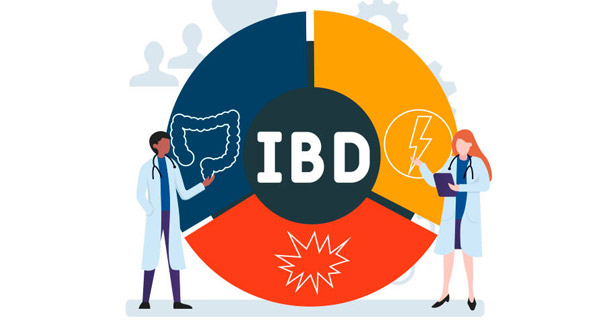Diagnosis of inflammatory bowel disease is a complex process. It combines clinical assessment, lab tests, imaging, and endoscopy to confirm the presence and type of IBD. Because its symptoms often mimic other gastrointestinal issues—like irritable bowel syndrome, coeliac disease, or infections—an accurate diagnosis of inflammatory bowel disease is essential for proper treatment and long-term results.
The process usually begins with a detailed medical history and physical exam. Doctors ask about symptoms such as diarrhoea, abdominal pain, fatigue, weight loss, rectal bleeding, and urgency. They also review family history since IBD has a genetic link. Having a close relative with Crohn’s disease or ulcerative colitis increases one’s risk. A history of autoimmune diseases, medications, diet, and travel are also important clues.
Laboratory tests are an early step in diagnosing inflammatory bowel disease. Blood work can show signs of inflammation, infection, anaemia, and nutrient deficiencies. Raised C-reactive protein (CRP) or erythrocyte sedimentation rate (ESR) levels suggest inflammation. A full blood count may show anaemia due to chronic bleeding or poor absorption. Tests for vitamin B12, folate, and iron levels are also common. Liver function tests may reveal complications like primary sclerosing cholangitis.
Stool testing helps rule out infections that mimic IBD. A stool culture can detect bacteria such as Salmonella or Clostridium difficile. Another helpful test is faecal calprotectin. High levels of this protein indicate gut inflammation, helping doctors distinguish IBD from irritable bowel syndrome.
Endoscopy is the gold standard for diagnosing inflammatory bowel disease. It allows direct viewing of the gastrointestinal tract and collection of tissue samples. Colonoscopy is commonly used to examine the colon and terminal ileum. Ulcerative colitis usually starts at the rectum and spreads in a continuous pattern. Crohn’s disease often affects any part of the digestive tract in a patchy way. During the procedure, doctors look for ulcers, redness, polyps, narrowing, or a cobblestone-like appearance. Multiple biopsies confirm the diagnosis and check for cancer or infection.
When Crohn’s disease affects parts of the small intestine not reached by colonoscopy, imaging becomes essential. Magnetic resonance enterography (MRE) or CT enterography shows detailed views of the bowel. These scans can detect inflammation, fistulas, abscesses, or narrowing.
Capsule endoscopy may also help. Patients swallow a camera pill that captures images as it moves through the digestive tract. This test is useful for spotting issues in the small bowel, especially the jejunum or ileum. However, doctors avoid it if they suspect narrowing, as the capsule could get stuck.
Ultrasound is another helpful tool. It’s often used in children or to monitor Crohn’s disease activity. It’s safe, affordable, and free from radiation. It can reveal bowel wall thickening and increased blood flow.
Sigmoidoscopy may be done in some cases. This short procedure looks only at the rectum and sigmoid colon. It’s useful during flare-ups or when full colonoscopy prep isn’t possible. It still allows for sample collection.
Pathology plays a key role in confirming the diagnosis of inflammatory bowel disease. Tissue samples are checked under a microscope. In Crohn’s disease, doctors may see granulomas—clusters of immune cells—but these are not always present. In ulcerative colitis, typical signs include continuous inflammation and distorted glands.
Classifying the disease type is also important. Knowing whether it is Crohn’s disease, ulcerative colitis, or unclassified IBD guides treatment. Sometimes, especially early on, doctors can’t tell which type it is. In these cases, they may label it “IBD unclassified” and monitor over time.
Assessing how severe and where the disease is located helps shape treatment plans. Tools like the Mayo score for ulcerative colitis or the Crohn’s Disease Activity Index (CDAI) standardise these assessments and track progress.
Timely diagnosis of inflammatory bowel disease is key. It prevents complications, speeds up treatment, and improves quality of life. Delays can lead to lasting damage, more surgeries, and worse outcomes. That’s why collaboration among doctors, radiologists, pathologists, and general practitioners is so important.
Finally, public awareness of IBD symptoms is crucial. When people recognise the signs early, they can seek help sooner. Education and better access to care can reduce delays and improve outcomes, especially in under-resourced areas.


